The Broke Backpacker is supported by you. Clicking through our links may earn us a small affiliate commission, and that's what allows us to keep producing free content 🙂 Learn more.
I’m going to let you in on a secret. I don’t like bucket lists. I know, I know, I’m aware of the irony that a travel blogger doesn’t like a cornerstone of the travel industry.
The thing is, I feel like we go travelling and miss the entire point of travelling. Somewhere between seeing the fifth and seventh wonder of the world, the world stops seeming so wonderful.
So what do I like instead?
I like squatting in the corner of a kitchen in a far away country making the perfect tortillas with my Guatemalan neighbour. I like making flashcards for a language I don’t speak yet so that I can tell dirty jokes with my Portuguese work mates.
I want to take time to become neighbours and friends and familiar with the places I travel to.
I like to travel slowly.
Slow travel is a way of structuring your travels so that you are completing quests and seeking meaning rather than ticking things off your itinerary. There’s also a near spiritual satisfaction when you know that you have earned your way in blood, sweat, and literal tears to make it to a destination.
It can be intimating to Marie Kondo the crap out of your itinerary that no longer serves you joy. But trust me, my dude, the sweet reward of slow travel is so worth it.
Come with me as we dive into the world of letting go of where we need to be. Come learn about slow travel.
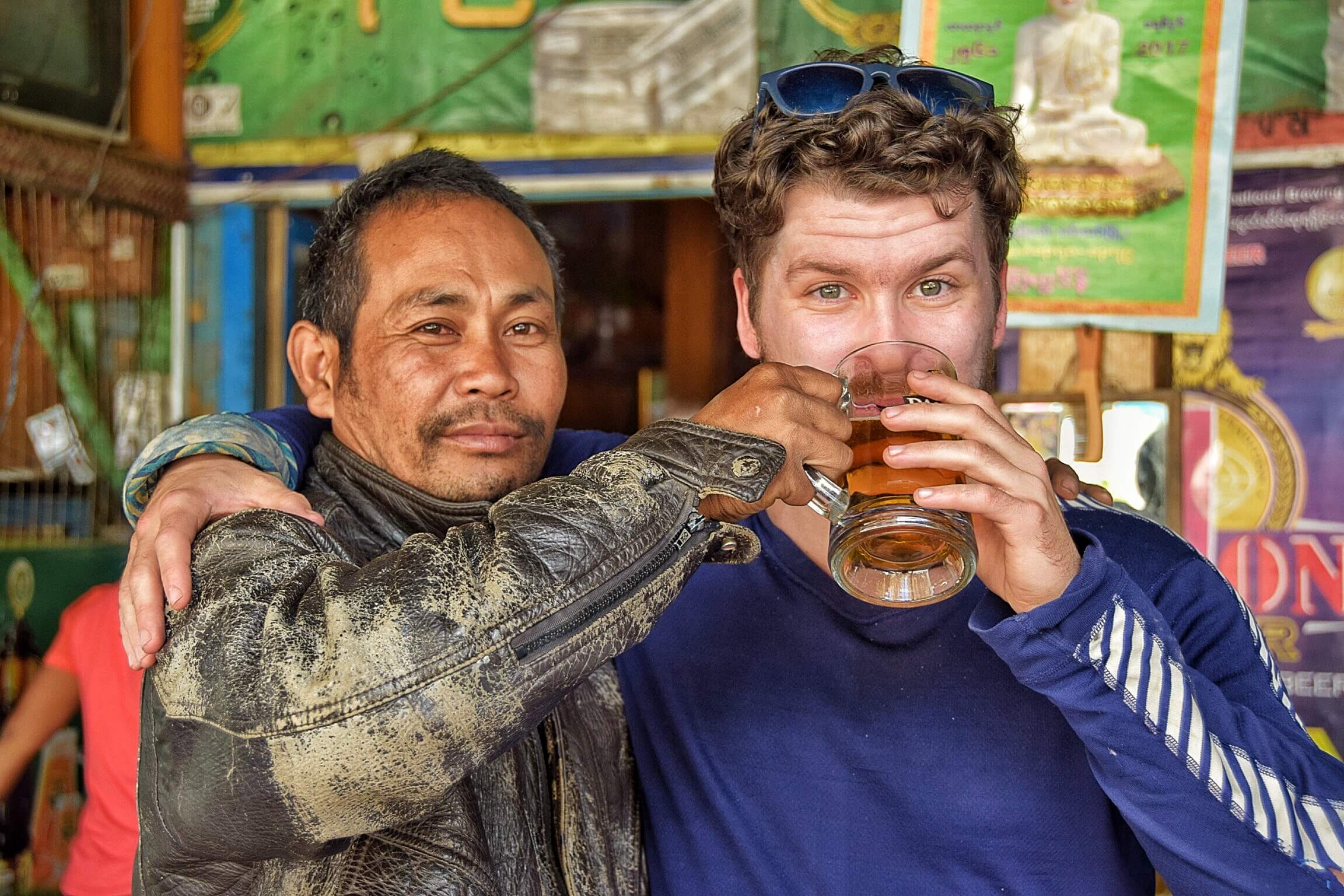
Photo: Will Hatton
The Broke Backpacker is supported by you. Clicking through our links may earn us a small affiliate commission, and that's what allows us to keep producing free content 🙂 Learn more.
Slow Travel Origins
Slow travel is actually a splendid offshoot of the slow food movement. The slow food movement arose in Italy during the 1980s as fast-food chains like McDonalds attempted to infiltrate and outcompete local businesses.
Italy said, no – but in Italian (which is really just an overly-emphatic ‘no’ with wild hand gestures), and the slow food movement was born. It emphasises a connection to place and valuing local businesses and their high-quality products over cheap, mass-produced food.
Essentially, it’s a movement of quality over quantity.
Slow travel, then, is a f*ck you to the vacuous Insta-famous travel bloggers and their fast food take on travel. It’s about throwing your caution to the wind and travelling without a phone.
You prioritise connection with local people over another selfie with the Eiffel Tower. It’s about sitting in a hole in the wall store on tiny plastic chairs and trying the best soup you’ve ever had in your life. As you look around, the smallest details create an imprint on your mind. So this is what travelling is about.
It’s about writing your own manifesto. Slow travel is the whole reason you hit the road in the first place.
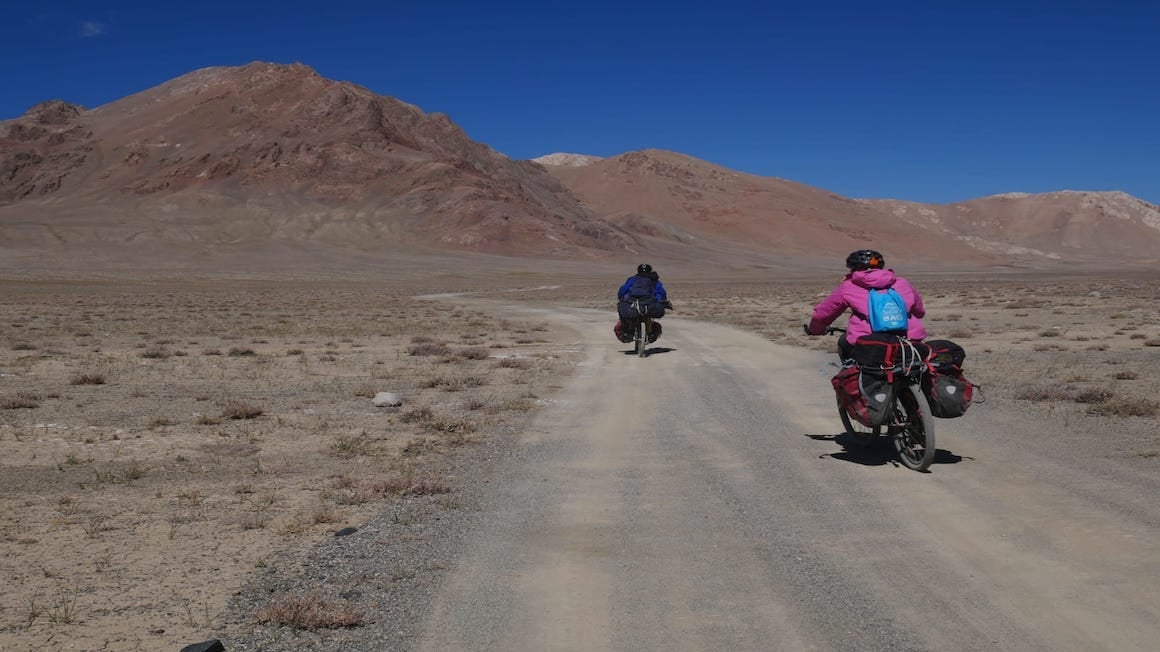
Image: Samantha Shea
Skip Your Itinerary
For me, there’s a mindset shift that is crucial to slow travel. My rigid itinerary would have me up at 6 am to try Trip Advisor’s best croissant and then shuttle on to the top 10 places you have to see before you die. You then rinse and repeat for 12 exhausting days. It’s a life-changing experience and then we go back to clocking in and out of the 9 – 5.
My slow travel itinerary would have me impulsively buy a bus ticket to a town I’d vaguely heard of. It gives you time to scour local newspapers for some part-time work. There’s time to learn the recipes of my housemates; eat at local restaurants. It’s about getting under the skin and becoming part of the fabric of the town.
I let my travels genuinely change me.
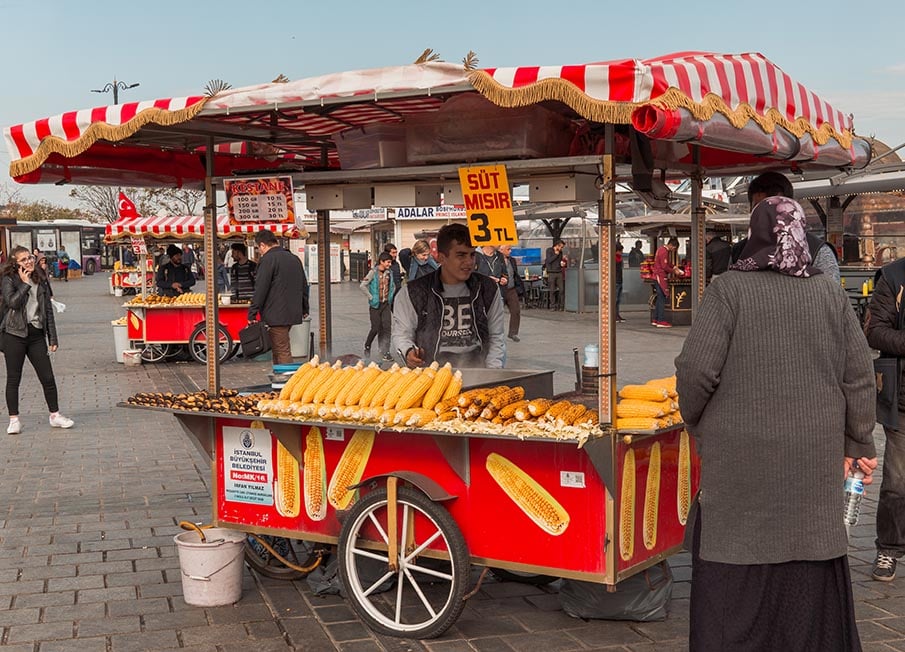
Image: Nic Hilditch-Short
But if we want our travel experiences to change us, we’ve got to let them in. When I found myself working on a sailboat, we ended up spending a lot of time in the Caribbean. Every Monday morning, the cruise ships come to St Thomas and every Monday evening the cruise ships leave.
The times we ended up sharing the island with twenty thousand cruise ship passengers, a strange sense of helplessness came over the crew and me. Here were all these people in such a rush, that they seemed to miss the entire point of their vacation.
Not only did they not seem relaxed as they ran about the island, but they seemed to miss all the little details about the streets too. It was like travel knocked on the door and they said, go away I’m looking to go travelling.
I thought it would be great if someone missed their cruise ship home. How much more interesting would they find this island if they worked in the bar for a few months and made friends with weirdo sailors like us. I wanted to show them through the backstreets and local buskers.
I wanted them to travel slowly.
Psst, I’ve got news… we’ve launched an online community and you’re invited <3
“Broke but Backpacking” is a WhatsApp community full of passionate travellers who love to exchange tips, stories and inspiration. Connect with like-minded backpackers and be the first to hear about exclusive deals and giveaways designed just for the community.
Join the CrewWhy Should I Travel Slowly?
If the most simple way of describing slow travel is quality over quantity, then I think it becomes clear why you should do it – to enhance the quality of your travels!
How exactly does travelling slowly enhance the quality of your travelling? I think it prevents traveller burnout. You know the feeling: you get back from an exciting and jam-packed trip more tired than you left. You need a vacation from your vacation!
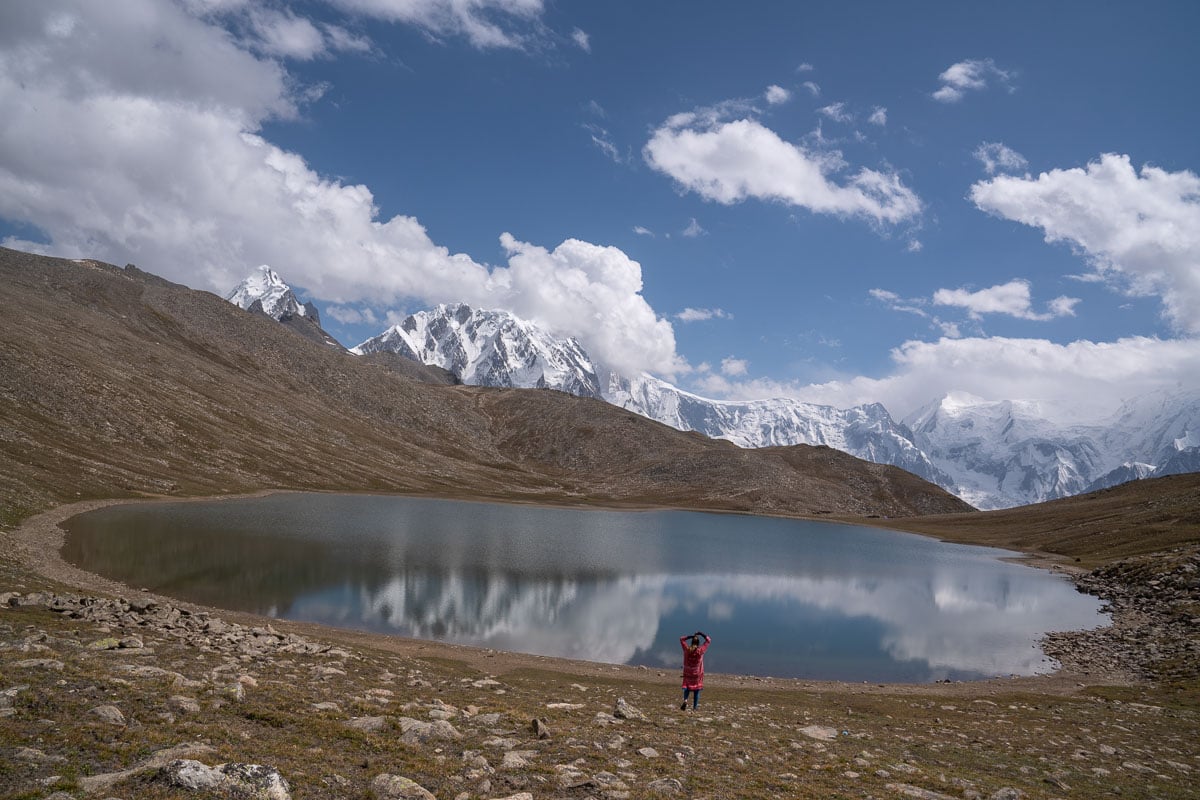
Photo: @intentionaldetours
By slowing down, you get back to the roots of what it means to take time out from your life. It’s not to see as much as you possibly can – it’s about restoring yourself and your energy levels.
Slow travel is also far more sustainable, far less expensive, and far more enjoyable than a high-speed tourist chase of attractions.
Join our entrepreneurship retreat in Bali!

Ahoy friends, Will here! Introducing a very special project that involves YOU – An 8-day immersive experience in Bali, where I have been living for 7 years now.
If you’re passionate about freedom and designing your dream life, this is your chance to join like-minded folk on the same path and learn from my own wins, losses and lessons over my fifteen years of entrepreneurship, whilst soaking in the best of beautiful Bali.
Expect daily workshops, recharge practices, intention setting and fire ceremonies and perhaps a cheeky game of pool against myself, the one and only undefeated pool legend. All while experiencing the island’s best-kept secrets ?
Slow Travel and Sustainability
Yeah, look, the world can feel pretty f*cked. It’s on fire, it’s running out of water, plastic is choking turtles, Keeping Up With the Kardashians is in its 20th season… And yet even as we look on at this slow-moving asteroid of destruction, it can feel like we have very little in our power to change the course of action.
We are too accustomed to next day shipping, international flights, and being able to buy travel experiences like we do new clothes. If I want to go see the Great Barrier Reef, provided I have the money, I can leave tomorrow and see the damn reef.
So on the one hand, we know that in order for there to be a Great Barrier Reef in thirty years we need to take drastic action. On the other hand, that round the world ticket just went on sale…
Do you travel fast or travel slow? For the sake of being a responsible tourist, I think you should travel slowly.
The first step is to take this literally. If you set yourself on the quest to see the Great Barrier Reef, you understand that the journey is as enjoyable as the destination.
Consider how you will arrive at the reef? Will you fly into Cairns and take a boat tour one day, and a scuba diving trip the next, before flying to the Whitsundays and staying the night?
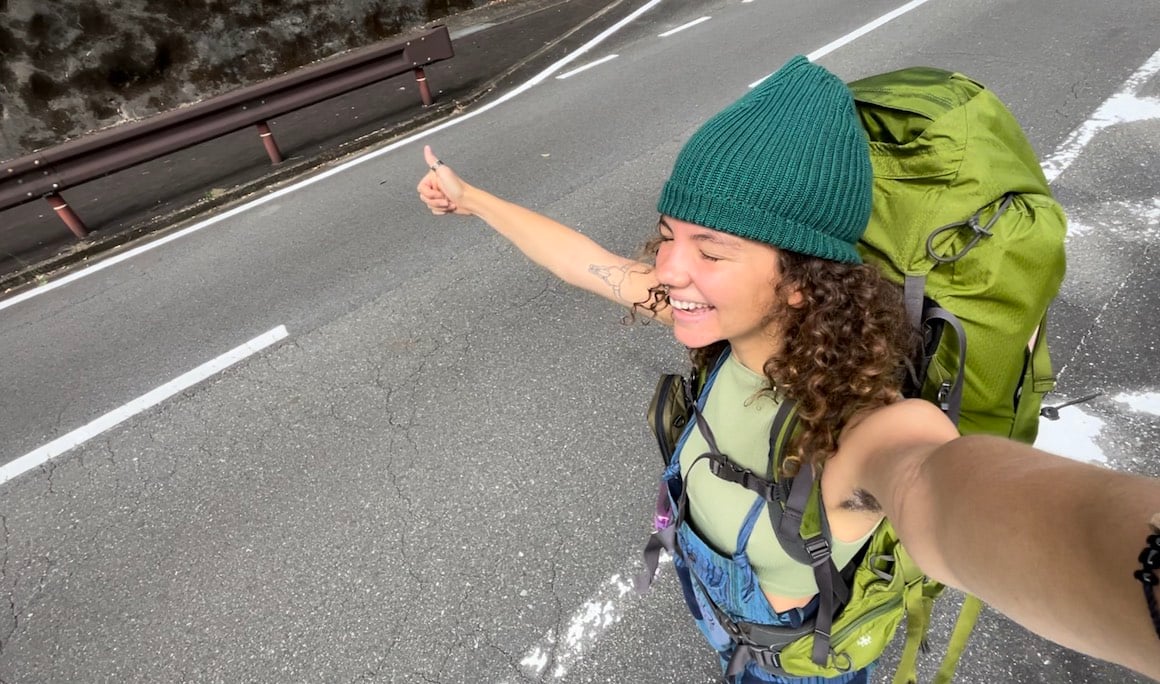
Photo: @audyscala
Or will you hitchhike to Cooktown? Will you live the boat life and sail your way from Bundaberg through the Torres Strait? You could swap hotel chains for homestays, Couchsurfing, or Airbnb. A few weeks instead of a few days? There’s always local produce to eat – or even try your hand at spearfishing (where it’s permitted, of course).
Not only do you cut your carbon emissions by flying less and eating local, but I would argue you see the ‘real’ Great Barrier Reef. Australians are known for being sarcastic, a little abrupt, but on the whole, decent people. If you’re just another tourist flying in and flying out, you’re going to get the bare minimum from the locals.
If you slow down – or do something a bit out of the ordinary like get seasonal work or hitchhike into town – you might get a few funny looks at first. “You wanted to see the reef, did you mate? So what, you had to stay for the season to do that, did ya?”
But underneath the bluntness, is an appreciation that someone slowed down and stayed.
Slow Travel and Combating the Travel Blues
I think there is pressure these days to ‘see it all’. You might never come back! Quick, make sure you get a selfie and post it to Instagram – or you might as well have not come!
This need to travel glued to your phone and to tick off destinations keeps you in a constant state of stress. Now while the best travel pushes you, it shouldn’t leave you feeling like a pile of limp, wet noodles.
The fact of the matter is, you are never going to see it all. So you might as well make what you do see worthwhile. Going back to the Great Barrier Reef example: rather than going on one scuba diving trip before flying back to your soul-crushing 9 – 5, you could live in Cairns for a few months.
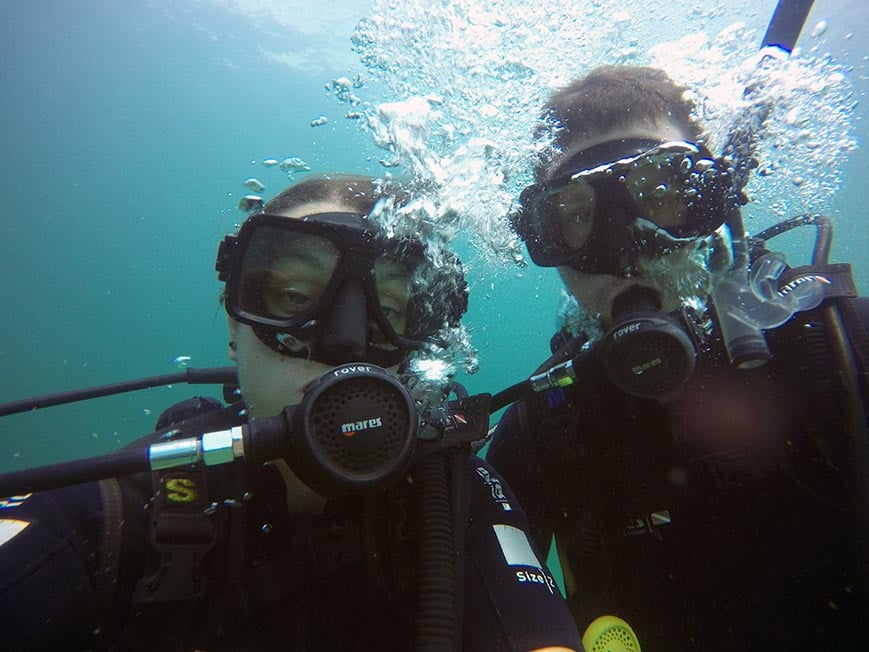
Image: Nic Hilditch-Short.
Instead of being ushered onto the boat after two hours of splashing in the water, every morning at 7 am, you could swim with the fish before making your morning coffee. You’d get to freedive, snorkel, scuba dive, sail, and generally play water baby goodness as part of your daily routine.
Travel is supposed to be a step away from the grind culture. You should travel to offbeat locations to challenge yourself, sure. You should learn new skills, new languages, new ways of life. But there’s no need to attach KPIs to your regimented travel routine. You’re not going to “fail” travelling if you don’t see the best places in the world.
You’re going to beat the travel blues by slowing down; by living somewhere and making a morning routine out of what most people consider a mere bucket list item.
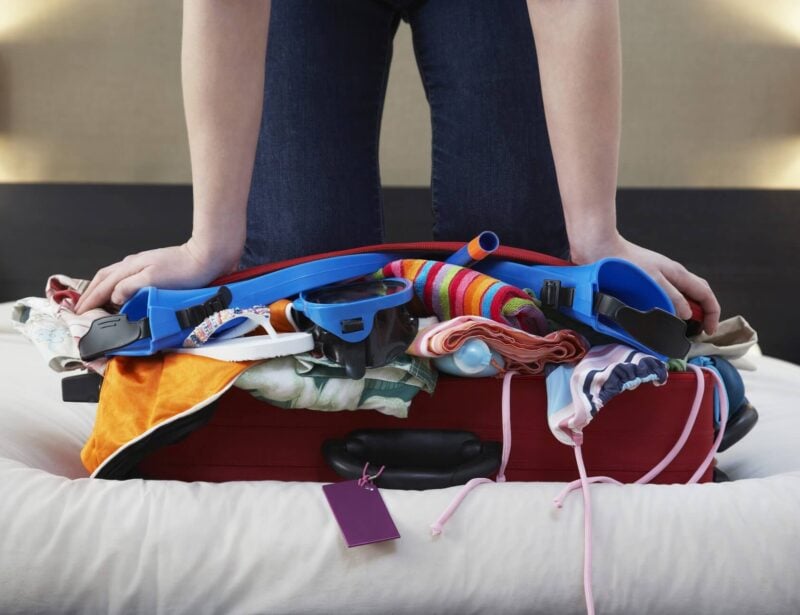
Wanna know how to pack like a pro? Well for a start you need the right gear….
These are packing cubes for the globetrotters and compression sacks for the real adventurers – these babies are a traveller’s best kept secret. They organise yo’ packing and minimise volume too so you can pack MORE.
Or, y’know… you can stick to just chucking it all in your backpack…
Get Yours Here Read Our ReviewSlow Travel IS Low Budget Travel
This ties into the next point. Slow travel is cheap. So while I could write an epic guide to broke backpacking, I could also just tell you to slow down.
But that doesn’t make any sense? How does staying somewhere longer turn out to be cheaper?
The thing is, it’s not usually the place itself that is expensive – it’s getting there! The main expenses around travelling are:
- The overland transport
- The accommodation
- The food
- The attractions
So it follows if you fly from Paris to Rome to Madrid and back to London over the course of two weeks – that’s going to add up!
Limiting your timeframe means you have fewer options and can’t keep an eye out for cheap flight deals, for example. You also take away the slower travel options of trains, buses, hitchhiking, or van life. When you HAVE to be somewhere, you pay for immediacy.
Once you arrive in a place, the concept of slowness continues to save you hard-earned dosh. If you don’t have anywhere in particular to be, you can opt to scout out a sick local homestay. You could also try fly and swap vacations – the most authentic way to experience life as a local IMO.
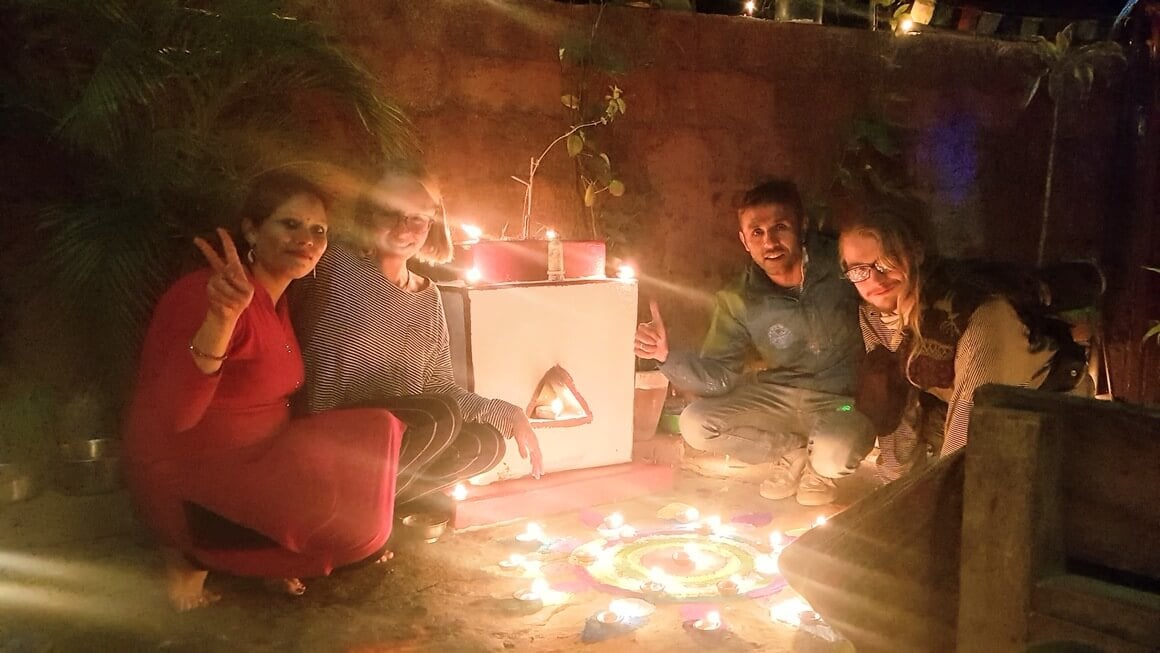
Photo: @Lauramcblonde
All of this cuts down on your accommodation costs. This leaves you a good chunk of coin for food and touristy attractions.
If you really want to stretch your coins, you could learn to dumpster dive for your food. Even if you don’t fancy plating up discarded food, slow travel can lead to cheaper and higher quality meals.
Slow Travel and Quality
Travelling slowly is simply more enjoyable. Quality is a bit of a sticky, and deceptively unknowable concept. It really asks, what is best?
The dominant cultural messaging for the last few generations was that you needed to see everything, do it all, be well rounded, but don’t lose your job! This led us to cram ourselves into these rigid little itineraries that leave no room for a regenerating planet – or self.
Luckily, we’ve said ‘no, it’s not a phase, mom’. Slow travel simply feels better.
How to Slow Travel
Like anything, there’s an art to doing slow travel well. But, also like anything, it’s better to get out there and start doing it – even if at first you are doing it imperfectly.
Remember, that above all slow travel is about connection. It’s about seeing life from a perspective other than your own.
I feel like there isn’t a whole lot of point in giving you a prescriptive guide on travelling slow – it defeats the whole point. The point of opening up your travels to chance and spontaneity is to ignore travel bloggers like me and make your own adventure!
Buuuut, here are a few tips to get you started with travelling slowly:
- Give up some “purpose” – i.e leave gaps in your itinerary!
- Train, don’t plane.
- Get a little lost.
- Eat local.
- Learn a new language.
- Spend more time in one place.
One way you can foster a genuine connection with a place while spending more time there is by volunteering. Giving back and getting involved in a local community is the core value of slowing down your travels. You get to sink your teeth into a new culture and learn more about the people there.
While I am quite comfortable turning up in a new town and checking the local notice boards for volunteering opportunities, I think there’s something to be said for organising a volunteer placement before you hit the road.
You can use a platform such as Workaway or, our personal favourite, Worldpackers! It’s a review based platform specialising in connecting volunteers with meaningful projects all over the world.
The website is easy to use and you know exactly what to expect out of a program before you get there. And broke backpacker readers get a 20% discount on their subscription!
Ultimate Slow Travel Experiences
So now that you’re juiced up and inspired to slow down and perfect the art of meandering, what kind of epic travel experiences do you have to look forward to?
You can start by exploring your hometown! Maybe there is a local farm to table restaurant that you’ve always wanted to try, or a pottery class that you’ve always wanted to attend! It pays to think of your own town as somewhere full of layers and hidden secrets, too.
When you do hit the road, and you want to do so sustainably, there are a few epic slow travel experiences that come to mind.
Living the Vanlife
Your first foray into the world of travelling at a snail’s pace may involve getting yourself a little home on wheels. In the same way that a snail goes about life with their house on their back, living the van life means taking your home with you.
Living out of your van encourages you to appreciate the journey between destinations. The road less travelled is usually bloody gorgeous – and has way less traffic. When you do arrive in a new town, you already have your accommodation sorted!
Vanlife is wonderful because your possessions are pared down, your pace of living is slow, and your appreciation of long term slowness is increased. Plus, it’s cosy!
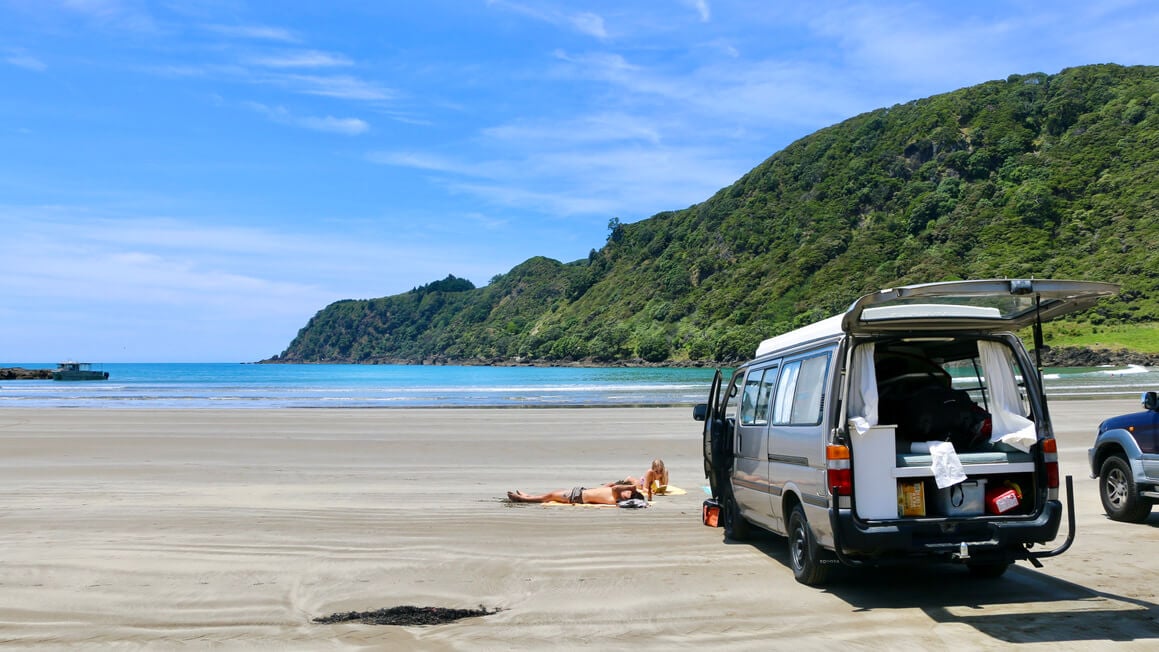
Photo: @danielle_wyatt
But you know what? Vanlife is also grotty, challenging, and hardly ever goes to plan.
I remember living out of my van and driving with my mate on a South Island road trip. Now, I knew that it was winter and I knew that New Zealand was prone to flooding and I had even checked the weather forecast and seen a hectic storm was on the way. But I (recklessly) said, fuck let’s keep driving.
We woke up to discover that we couldn’t drive onwards in the morning because the road was closed. Oh shit, no worries, we’ll just drive back to where we came from.
Except that road was closed too. We found ourselves stuck in a town, with no motel, in the middle of the largest flood in 10 years.
After getting us bogged, and then unbogged, and restarting our battery in torrential rain, I made the decision of any rational person: I said, well we can still go to the pub. Drinking in a local pub with the road closed in two directions is probably the best thing that could’ve happened to someone who decided to keep driving through a flood warning!
Anyway, a fair few drinks were shared. In the end, we had multiple offers for a place to stay until the roads were open again. Vanlife is not always easy and it’s not always pretty. But man, it certainly forces you to slow down and forge connections in the strangest of places!
The Dreamiest of All Slow Travel – Boat Life
Sailing takes slow travel and turns it into poetry. You rely on the wind and the currents to take you from A to B. Having the weather as your decision-maker forces you to think about your travel in terms of seasons.
Working so hard to reach a destination makes it that much sweeter – and the destinations are already pretty sweet. But after sailing across the Pacific for 30-odd days, the first sight of land touches the sublime. Earning your way to a destination in blood, sweat, and night watches is one way to ensure you have a deep and unending appreciation for a place!
The old salts live by the phrase, the best plans are written in the sand at high tide. You make a plan to spend a season sailing the Caribbean. But then, you realise that there is an excellent weather window to cross the Atlantic, and you heard that the wine over there is really quite nice.
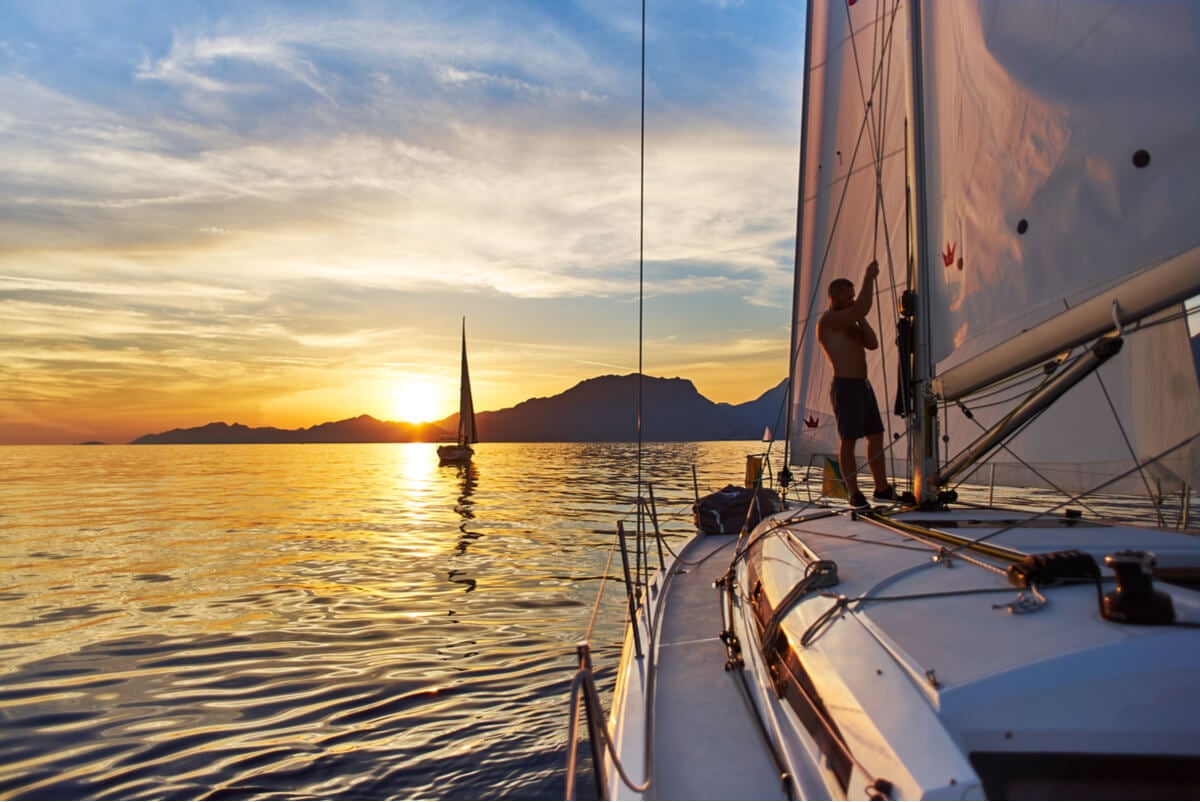
Photo: Indigo Blue
Provided your boat is in tip-top shape and your crew haven’t mutinied, you may find yourself somewhere in Portugal thinking, huh, this is nice.
Sailing is also environmentally sustainable. The adventures you and your floating tin have really drive home this sense of responsibility for this pale, blue dot we call home. And that, more than anything, is the point of travelling slowly.
Hitchhiking
So this one time in Mexico, my pet chicken and I stood on the side of the road in the Yucatan and decided to hitchhike.
My chicken ended up falling asleep because it was taking a while for someone to stop for us. I kept myself busy by spotting shapes in the clouds. It’s truly astounding how beautiful the world is when you’ve got nowhere to be.
Eventually, someone pulled over and offered us a ride. Of course, we got to chatting. There is not much I like more than a good old fashioned chit chat with a stranger. The next thing I know, we had taken a turn from the main highway in order to find the best taco my new friend remembered having as a kid.
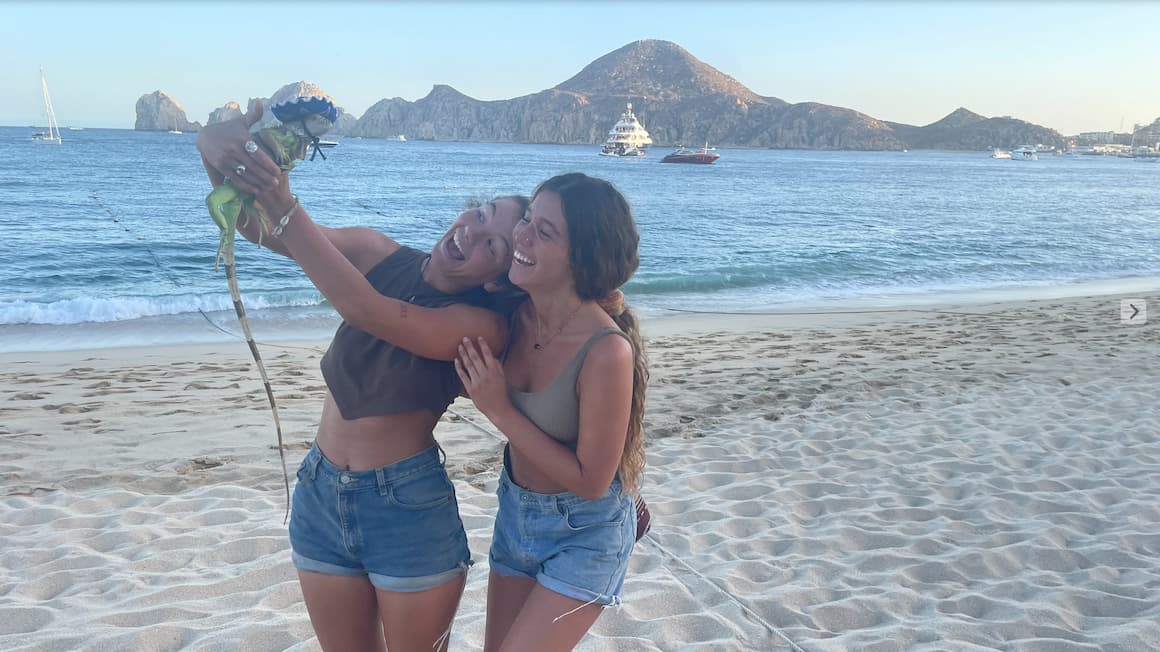
Photo: @amandaadraper
The best tacos turned into sampling the best mezcal in town which somehow turned into karaoke in a small bar in rural Mexico. My chicken was given so much free food that she fell asleep in the middle of the blaring karaoke music!
When I started that morning, I had absolutely no idea where the day would take me. Perhaps I’d end up camping by another beautiful beach again. Perhaps I would make it closer to the border. But as it turned out, I made a good friend and was privileged to try the best tacos in the Yucatan.
Hitchhiking is a special form of slow travel because it puts you right in the thick of it. This is what travel is about. You slowly, slowly make it somewhere. The where becomes less important. The when becomes almost irrelevant. The locals become your neighbours and the country becomes your home.
Beautiful.
Slow Travel FAQs
The Slow Travel Finale
When you do hit the road, ask yourself this: Where do I have to be?
The world is big and life is short, sure. If you can’t ever see everything, then you should enjoy what you do see. By slowing your pace through the world you are able to let the world change you.
Over the years that I have travelled the world, I have certainly seen some incredible landmarks. But a country has never felt ‘done’ to me. I’ve never completely seen or experienced everything a place has to teach me. I have lives and homes scattered across the globe.
There is also a mystical element to the unknown. And slow travel emphasises the element of chance. When you don’t have to be somewhere, you allow spontaneity to guide your travels.
When I didn’t have to cross the border by a certain date, I got to enjoy a night of karaoke in a small-town bar in rural Mexico. I got to make friends that I stay connected with to this day.
This has been slow travel’s ultimate lesson to me. That my neighbours in Mexico have more in common with my friends in Germany than they have differences. We are united in the pursuit of a life in which we feel free.
Next time you plan to hit the road, take your time and stop to chat with the fruit vendor, the bus driver, and the people at the park. You will enjoy throwing your itinerary out the window and allowing the world to change your perspective. I think you will enjoy travelling slowly.
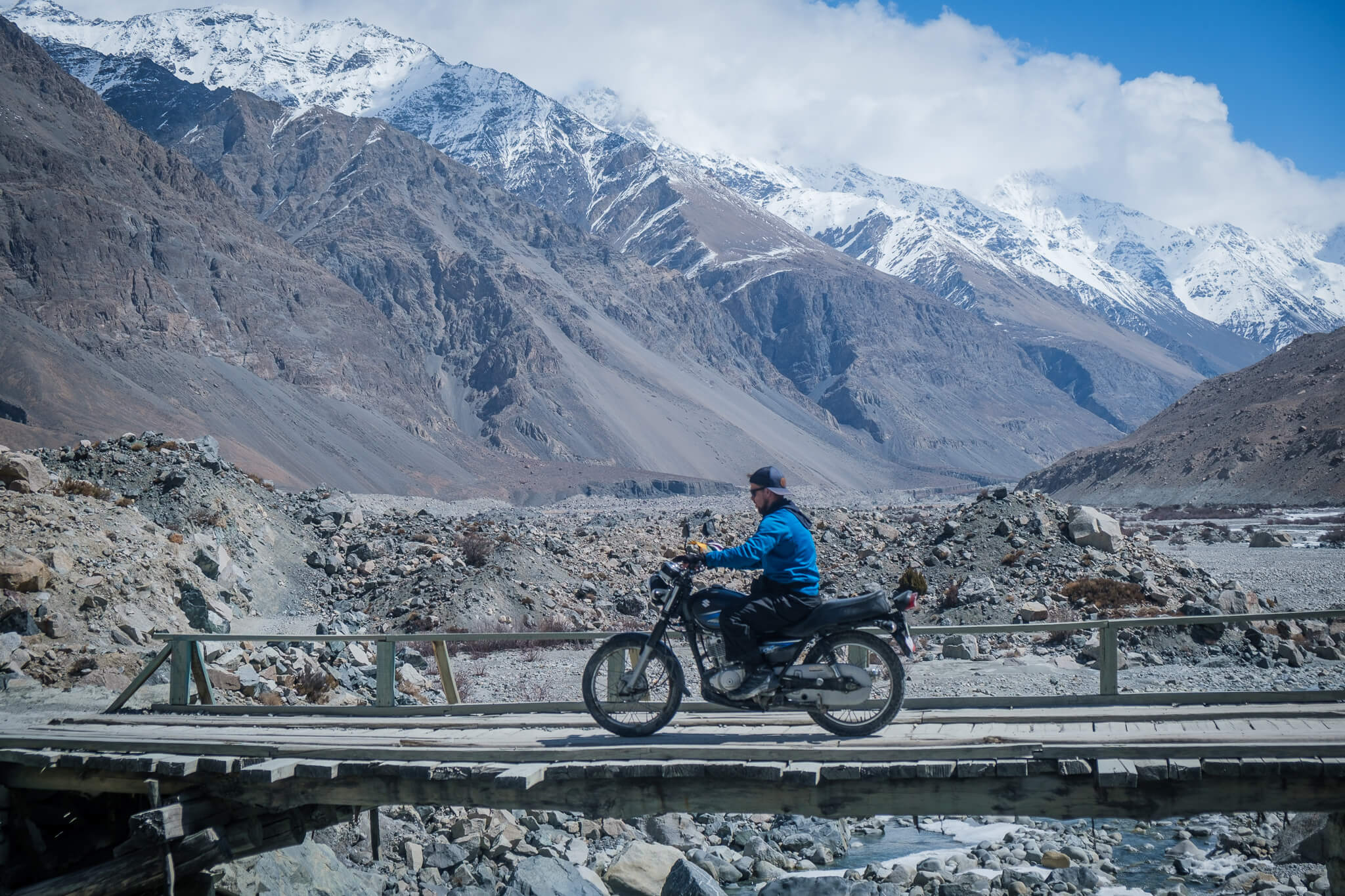
Buy Us a Coffee!
A couple of you lovely readers suggested we set up a tip jar for direct support as an alternative to booking through our links, since we’ve decided to keep the site ad-free. So here it is!
You can now buy The Broke Backpacker a coffee. If you like and use our content to plan your trips, it’s a much appreciated way to show appreciation 🙂








